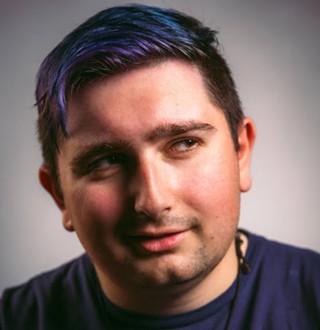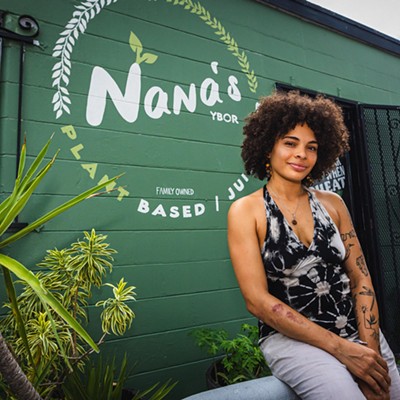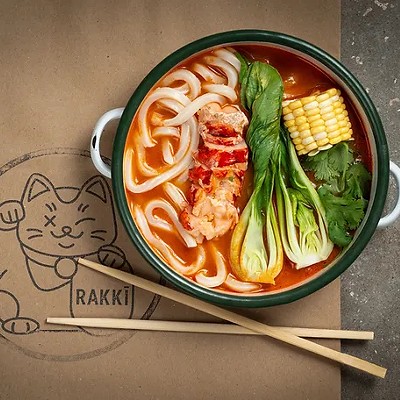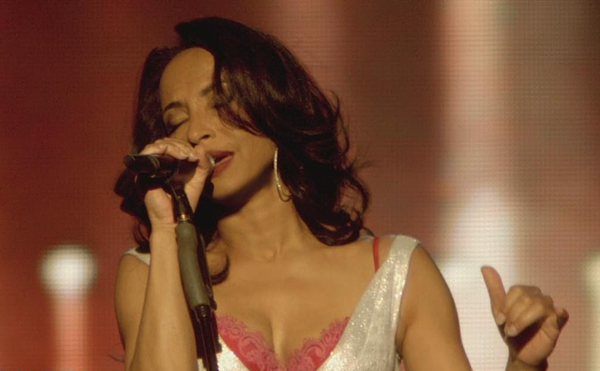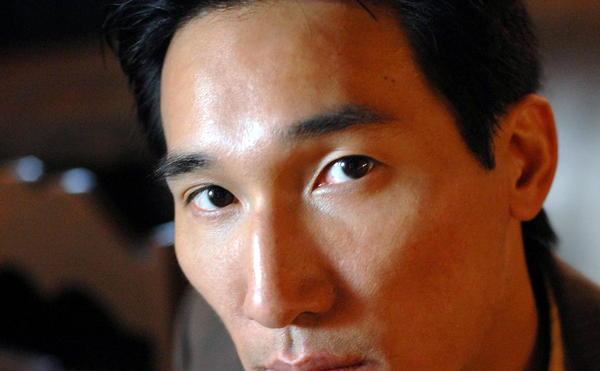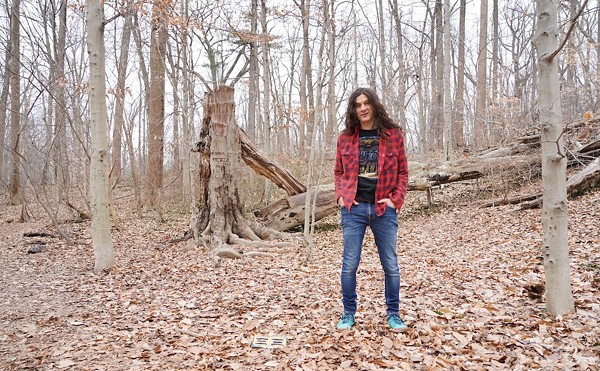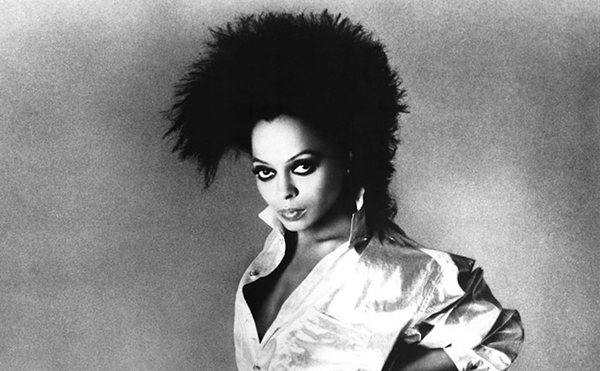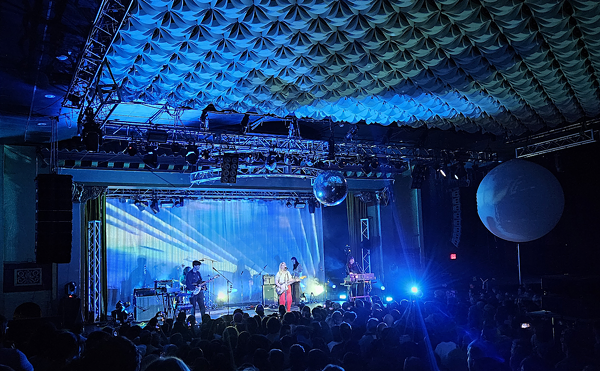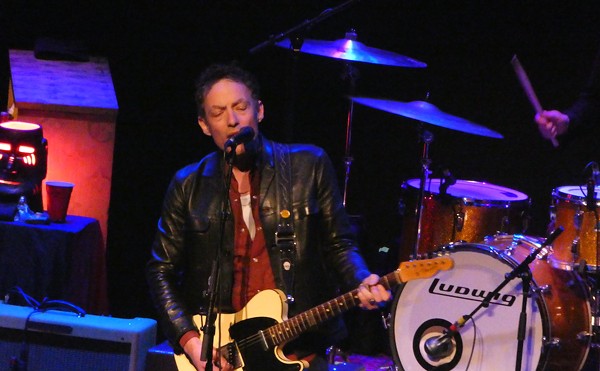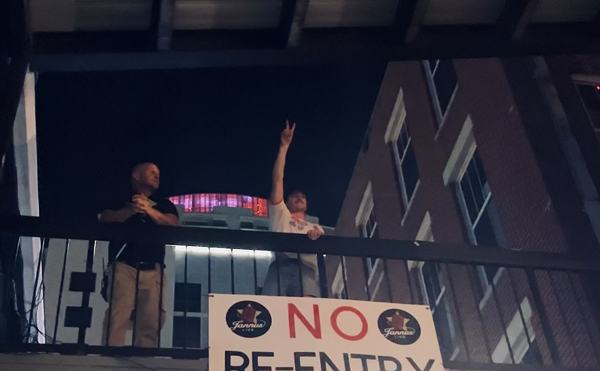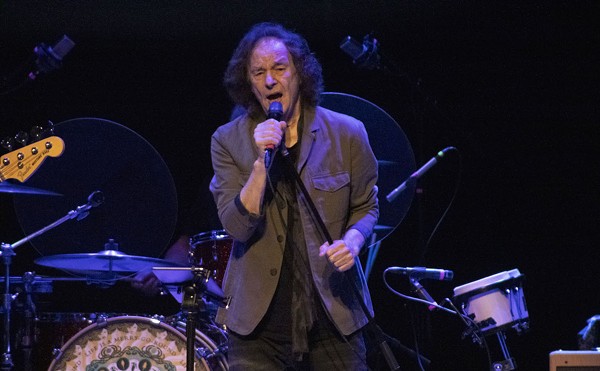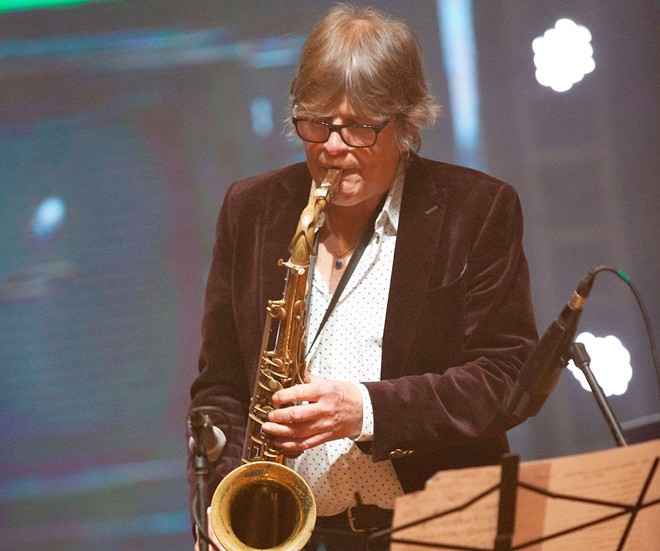
The 76-year-old saxophonist—a member of multiple King Crimson lineups in both the early ‘70s and everything past 2014—has spent his career providing horn sections to The Rolling Stones, Eric Clapton, and Dire Straits.
His 1982 “Two Young Lovers” session with Mark Knopfler and company turned into a tenure as the band’s touring saxophonist. “You can see the results on Alchemy. That was the band that I played with,” Collins told Creative Loafing Tampa during a mid-rehearsal call from Slovenia.
Collins’ time as a member of Dire Straits took place a decade after he quit King Crimson, due to constant—but since reconciled—issues with main creative force Robert Fripp. “He wanted to dominate me, and he just said various things which upset me, and it got to the point where I thought ‘I can't do this.’ I was 22, I had to find other music to play,” he explained.
But after hugging it out with Fripp some 30 years later, Collins would spend the last eight years of Crimson's existence back in the touring fold, until 2021, when drummer Gavin Harrison left the band, and Fripp decided that he didn’t want the band—at this point, equipped with a trio of drummers—to tour without him.
For right now, King Crimson is pretty much history, and there’s still no chance that we’ll ever see an official Dire Straits concert again, but Dire Straits Legacy—already featuring longtime keyboardist Alan Clark and, until his death last month, Brothers in Arms-era rhythm guitarist Jack Sonni—brings together the band’s original backing ensemble to rip out Knopfler’s songs. Collins' time in the original lineup may have taken place before the band acquired groundbreaking international success—and more on the road than in the studio—but his replacement, Chris White, declined to take part in the legacy band.
Get our interview with Mel Collins below. Tickets to see Dire Straits Legacy play Bilheimer Capitol Theatre in Clearwater on Tuesday, Sept. 19 start at $39.50.
Thanks a lot for doing this with me, Mel. Are you in Italy?
No, we’re in Slovenia. We actually playing tonight in Ljubljana, and tomorrow, we go to Kosovo. So, we’re sort of in the East European area. We were in Rome rehearsing, then yesterday, we came up here. We have a gig tonight, and then, we move to Kosovo tomorrow. So, pretty obscure places I've actually never played in, to be honest. I've never been in the area, so it’ll be interesting.
Cool, gotta love a new adventure.
Yeah.
So, going into this Dire Straits Legacy tour a little bit, how were you first approached to play with the original Dire Straits back in the ‘80s?
Originally, like all my work in those days, it was a session. I was asked to go and play on a track that Mark [Knopfler] had written called “Two Young Lovers,” and I met Alan Clark. I had actually played with him in the ‘70s, on a tour with Gallagher and Lyle, so I knew Alan. He probably recommended me to Mark, because he needed a sax player to play on this track. I went in, and we got on very well.
Mark then asked me to do some gigs featuring this tune, and then I extended that into some other pieces. You can see the results on Alchemy. That was the band that I played with, and those were the songs that I did at that time. But it was a session, and all my work was like that: I'd get a session, then they'd ask me to go on the road. You did the album, then you did the tour, and it seemed to go that way for a long time actually, but now there's not so many sessions. It just doesn't happen like that anymore.
Yeah, sadly. Now, how were you approached to join Dire Straits Legacy?
I was actually in Germany. I went over in 1996. I already played a tour with a German superstar called Marius Müller-Westernhagen. On this tour, he had a couple of keyboard players, and obviously, I met the band. I got a call after the tour. The musical director was approached to do a show in Germany, which was virtually the German version of "David Letterman," and asked me if I was interested in coming over for maybe three months, six months at the most, as a short spree on TV in Cologne, and it turned into 20 years. 20 years later, I was still doing the show. So that meant that I wasn't really in London very much, so I lost a lot of connections.
But Alan Clark was part of this thing with Marco [Caviglia], this new project, and they needed a sax player. Chris White, who replaced me in Dire Straits, didn’t want to do it. Alan called me up in Germany, and asked if I’d like to come over to him for a bit of fun, basically. I came over, and it grew and grew and grew, until it became what it is now: Dire Straits Legacy. And I've sort of stuck with it, mainly because it was fun, and they're great players. You know, Phil Palmer, Alan Clark, Danny Cummings, who originally played in Dire Straits at some stage. So I’m playing with ex-members of Dire Straits, which is a little bit different from playing in a tribute band, because we’re actually playing with the real guys. They’re all fantastic musicians, so it's been lovely, actually. I’ve enjoyed it very much, even though it’s based in Italy. But Italy is great, with the food and such. It's nice to go over there every now and again.
Are you in touch with Mark Knopfler at all? Like, do you know his thoughts on this band?
I went to see him in Cologne, when I was in Germany on a solo tour with Danny Cummings. He invited me to the gig, and that's the only time I've seen him. Actually, no. On this TV show, Mark came over and did one of the shows, and didn't know that I was there in the band. That was a strange moment, because I hadn't seen him for ages. But he came over and said hello, so pretty brief. Then years later, I saw him…this was about five, six years ago, with his solo project, and Danny [Cummings] was in the band.
I went back to the hotel, and Mark came over. He was so nice to me, I couldn’t believe it. He hadn't obviously had any thoughts about me for years, but it was a nice meeting. He just said hello, and he went off to bed, so whatever. But I don't have any connection with Mark, to be honest.
Going into your own career here. I know your dad was also a session saxophonist, who worked for Judy Garland. This is a bit of a deep dive, and I don’t even know if this is true, but did he happen to play tenor sax on The Beatles’ “Savoy Truffle?”
He did, actually! Funny enough, I saw something the other day that had his name attached to The Beatles. I didn't know that was something he did. He was very busy, he worked all the time. In those days, my father did three or four sessions a day, every day. When I started playing, I did three or four sessions a week, if I was lucky. And now, there's nothing. Maybe three or four sessions a year. It’s all changed.
Wow. So, I asked Tony Levin a slightly similar question a few years ago. Do you ever look back on the years you weren’t in King Crimson, and wish you could have been? For example, have you ever listened to something from Discipline and heard a really cool potential sax section in your head?
I had the opportunity forty years later in 2014, when Robert called me, asking if I'd be interested in joining the new version of King Crimson with three drummers. But at that time, I had fixed this problem with Robert. In the ‘70s, he was really mean to me. He wanted to dominate me, and he just said various things which upset me, and it got to the point where I thought “I can't do this.” I was 22, I had to find other music to play, and also, the drummer Ian Wallace and the bass player Boz Burrell had joined Bad Company. We were very close, and the whole band left Robert to be honest, and I put it to bed. I didn't want to know about King Crimson, and I never mentioned that I was in King Crimson after that. I didn't even think about it, to be honest.
I did go back to do a session on Red, but that was about it. I suppose I was lucky enough to come back into the band, and then again 40 years later. I really appreciate what they've done, and how clever Robert was. I knew that he would destroy me if I didn't move on at that time, and it sounds a bit dramatic, but that's how I felt at the time. I wanted to play different with different bands and in different styles.
I was in Clannad, the Irish band for 10 years. I was with a guy called Pino Daniele in Italy, also on and off for 10 years. And then, I got all these different gigs: Roger Waters, I was with The Stray Cats for six months in the States, when they made it really big. So, this was great fun, and I was learning a lot. It helped my playing, and I would have been stuck with King Crimson, but I had enough at that time. So, I think I did the right thing.
Well, at least as the years went on—per what I’ve read anyway—Robert has become a lot more lenient with you.
Yes. He has changed quite a bit. He called me, actually. We put this behind us before the Crimson reform. Jakko [Jakszyk] put this band together, the 21st Century Schizoid Band, which also had original members Michael Giles and Ian MacDonald. And we went on the road playing King Crimson music, which was enjoyable because the pressure was off. And it was nice to play with Ian and Mike, who I always admired anyway.
Although Mike, after about six months of rehearsing and a couple of gigs in Japan, decided he couldn't do it anymore, and he left the band. He left us, which then led us to bring in Ian Wallace, from the lineup I was in back in the ‘70s. So my point is—I’m rambling now—but my point is that Robert knew about this project, and wanted to let us know that he backed it, and he was happy for us to go out on the road, and that there was no animosity at all. He called me up after 30 years, and apologized for all that stuff he said to me in the early days. It cleared the air. I could put that behind with Robert, and he was a different person, really. And then, when we actually got together, it was just when the TV show I played on in Germany finished after 20 years. I didn't know what I was gonna do. I was in Germany, I had formed relationships there, and I knew I wasn’t gonna get anymore work over there, other than the odd thing.
And two weeks later, Robert called me asking if I wanted to go on this new spree with the new version of King Crimson, and I said “of course, yes please.” And that just followed on, very fortunately at that time. I was back with Robert, and it was great. I suppose we were on the road for about seven years since 2014, until a couple of years ago. It was a great band. Did you see the band at all?
Yes, I did. I saw the first show back from COVID, actually. In Clearwater, Florida. It was amazing.
Really? Ah, okay. So, you know how it was. It evolved to the point where we were doing really well and were so successful. Unfortunately, Gavin Harrison wanted to leave to join up with Porcupine Tree again. But Robert decided that he couldn't go back on the road without Gavin, because he had orchestrated the drums. Three drummers, it’s got to be sorted out properly. And also, cues are very, very important on stage, and Robert relied on Gavin very much. So, he decided that would be it for the moment, but I know what Robert is like. He’ll probably change is mind, I’m sure. When he gets fed up with going on the road with Toyah, he’ll put another version together. I think so. If we're still around.
Haha, at the very least, he’ll always have Toyah to make the videos with every Sunday.
Yeah, I mean, we prefer to say that we haven't seen any of them. It’s a good way out.
“Oh no, Robert Fripp is in a bee suit!”
*laughs* I know! I did see that one, I must admit, I was horrified, really horrified. After all the work we did together, and how he was sort of a guru to everybody. I can’t answer that, I don't know what to say. So I haven't seen any of them.
I totally get that. But anyway. Like you said, I know that everything related to King Crimson’s future is up to Robert, but you did tell Rolling Stone in 2021 that there were talks of doing a record similar to A Scarcity of Miracles. Two years on, do you have any updates on that?
Yeah. Well, as I say, I live half an hour away from Jakko. He has a studio there and he really put the album together. We have plans to do some more recording, and hopefully, that's going to happen when I get back from this tour. I've been doing a few things with him recently, so we do plan to rerecord some of the stuff, possibly play some of the new tunes that we were introducing, and actually record those in the studio. So that is still in the cards.
This interview has been edited for clarity and length.
Subscribe to Creative Loafing newsletters.
Follow us: Apple News | Google News | NewsBreak | Reddit | Instagram | Facebook | Twitter | Or sign up for our RSS Feed


